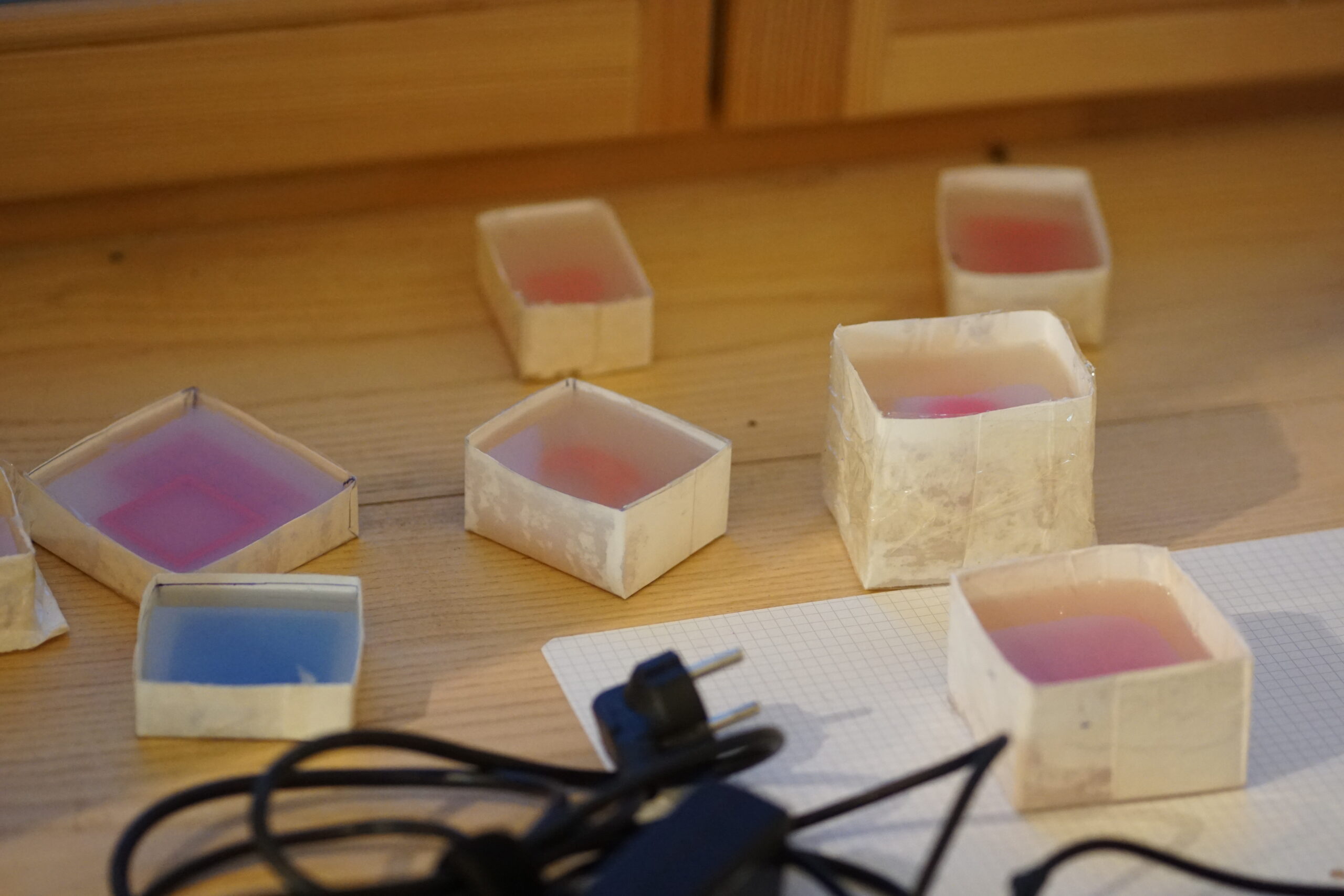Intellectual output
The intellectual output will focus on learners who have no previous knowledge about 3D printing. Our methodology is prepared for 3D workshops for young people (14-19) where they learn, create, innovate, communicate and collaborate with their peers in an open, non-formal environment.
The goal of the workshops will be to create a silicone mold (form). Those forms can be designed for many purposes: as baking forms for cookies or pies (silicone can be put into a hot oven), for making chocolate, soap, ice cubes, etc.
The process will involve designing the form, printing it with 3D printer and then using silicone to make a form from the 3D-printed object.
Elements of the Intellectual
output


Learning and teaching materials
Slide presentations to be used in local workshops, facilitators’ guidebook, list of necessary materials and equipment. Available in English, Lithuanian, Latvian, Estonian and Russian.

Evaluation tools
Guidelines on evaluation methods, ready-made skill lists and a questionnaire for facilitators for the evaluation of their own and youngsters’ skill development and the quality of the 3D activity.

Recommendations
Methodological guidelines for the workshop, including the use of the introductory materials and non-formal education methods. The guidelines will include good practice examples.
